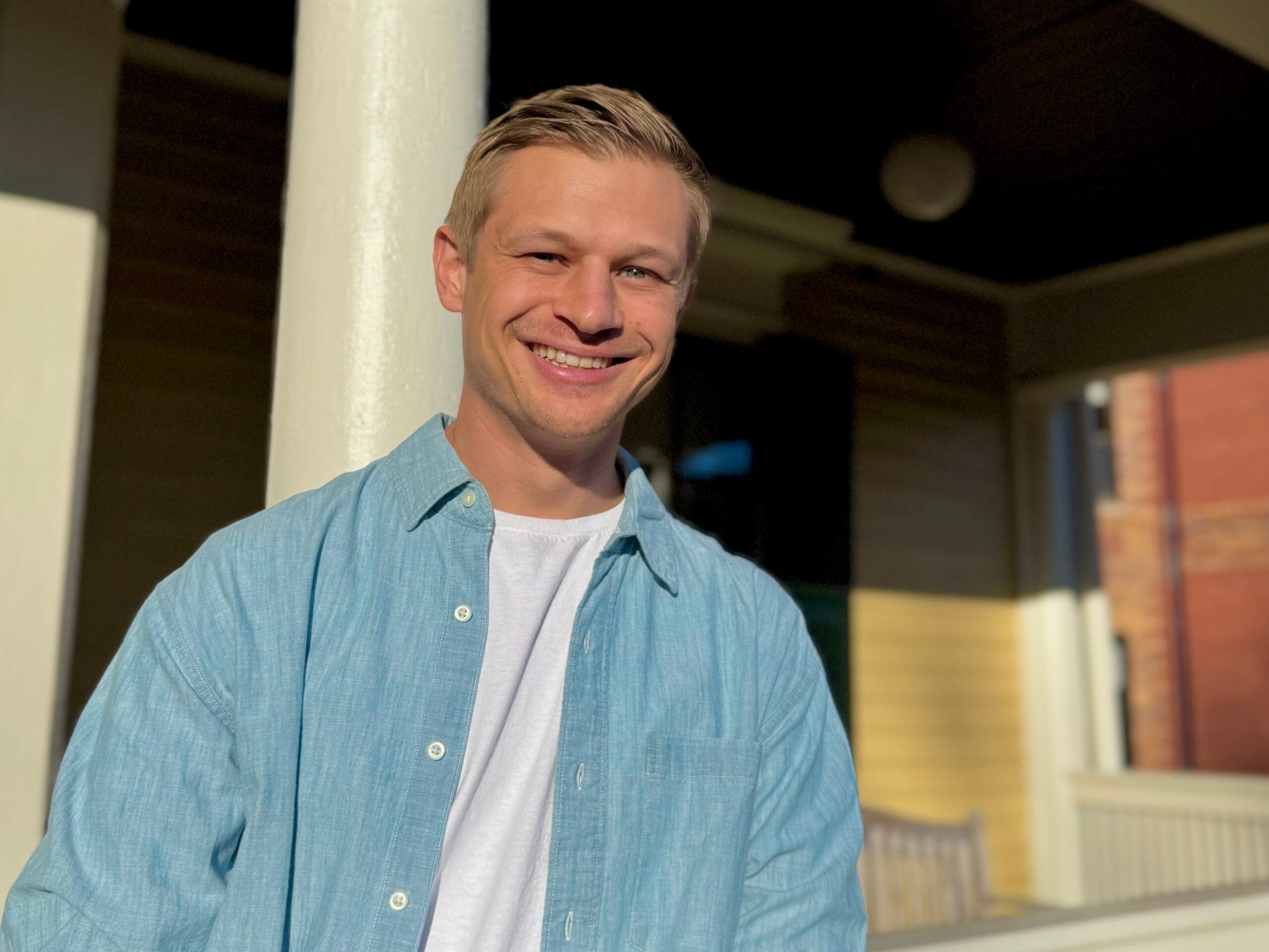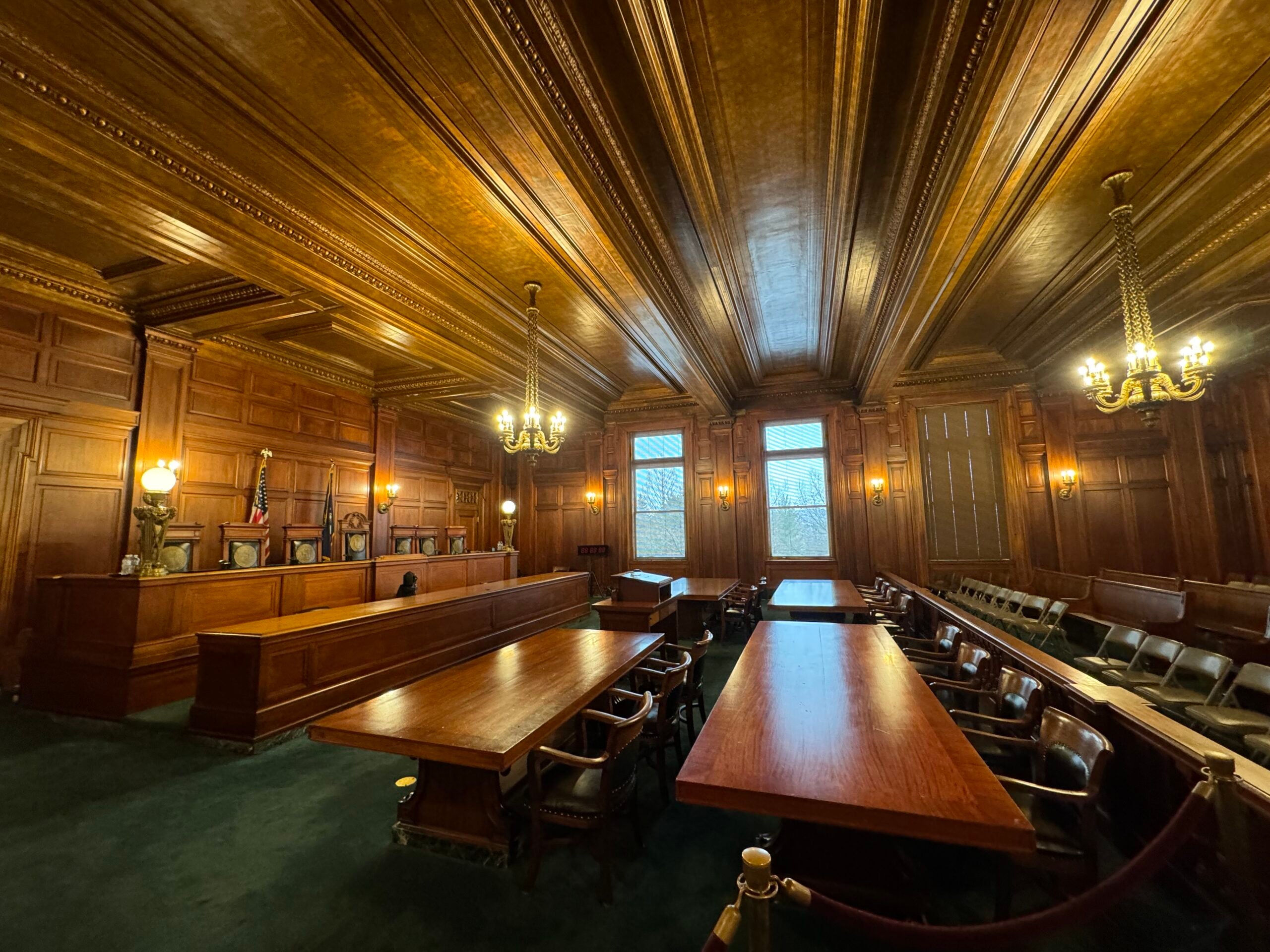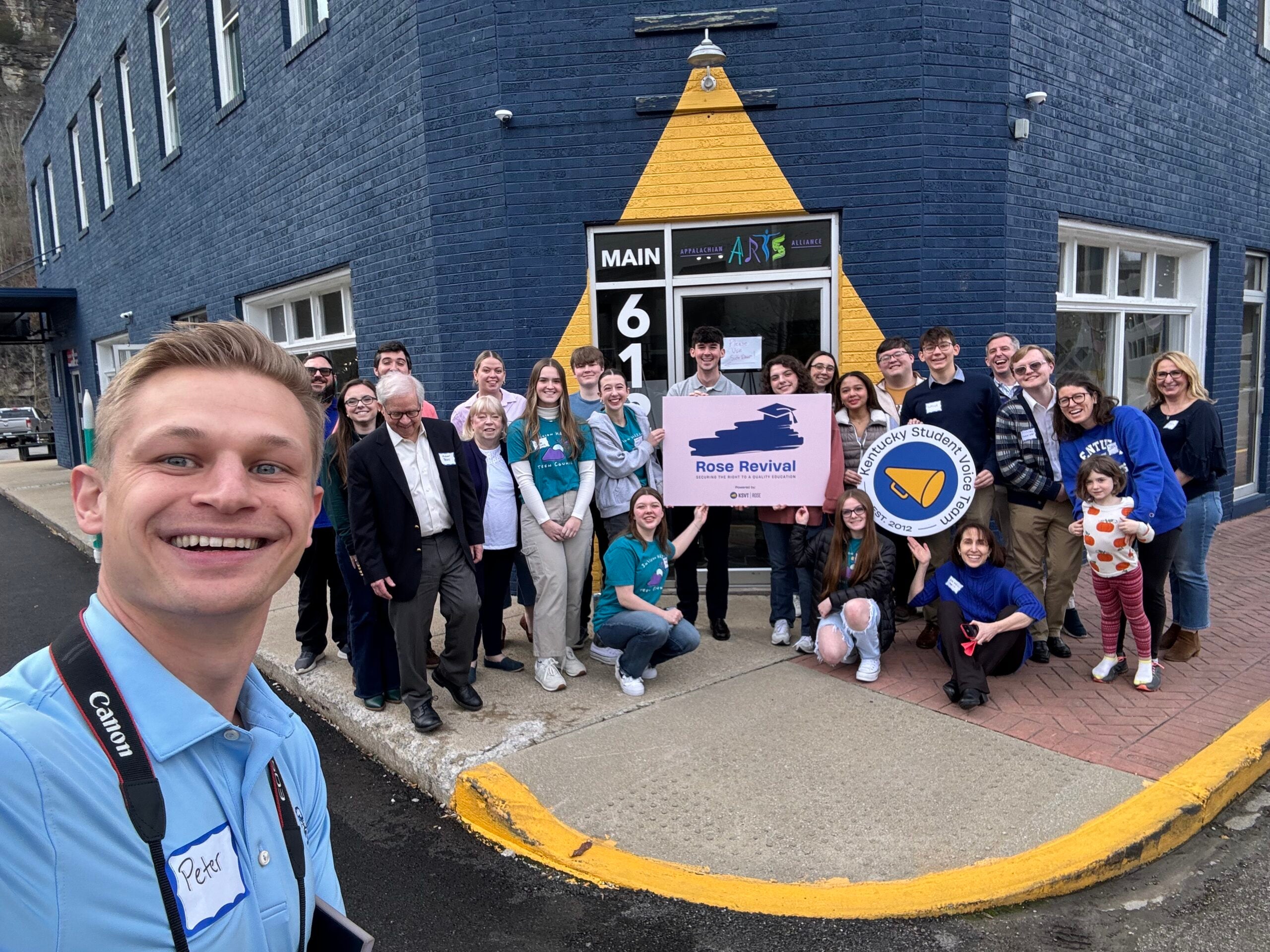In this Q&A, Peter Goeckner ’25 discusses his experiences in the Education Law Clinic, his passion for promoting access to high-quality public education, and his work in Kentucky on a novel litigation model that could have nationwide impact.

Which clinic are you in?
Peter Goeckner (PG): I am beginning my third semester in the Strategic Litigation section of the Education Law Clinic. There are three branches within the Education Law Clinic: Strategic Litigation, Individual Representation, and Legislative & Administrative Lawyering. The Strategic Litigation group was created two years ago and focuses on state constitutional litigation to enforce the right to a meaningful public education.
Why did you choose to work in the Education Law Clinic?
PG: I am passionate about promoting access to high-quality public education. Before law school, I was a high school teacher in South Korea and New York City. Through those roles, I realized the countless positive impacts that a meaningful education can have on a person’s life. Unfortunately, I also witnessed the severe disparities that exist within the American education system and became extremely frustrated. My connection to public education is deeply personal—I grew up in the Iowa public school system, where I watched many talented peers fall through the cracks because of inadequate support and resources. All of this led me to law school and, specifically, the Education Law Clinic. Now, I am working to protect and improve public education, all while cultivating my legal and advocacy skills.
What are the current projects of the Strategic Litigation group of the Education Law Clinic?

PG: Our main focus has been on the Rose Revival Campaign in Kentucky. We represent the Kentucky Student Voice Team (KSVT), which is a student-led coalition committed to creating more just, democratic schools in Kentucky. In 1989, the Kentucky Supreme Court handed down a landmark decision in Rose v. Council for Better Education, which led to sweeping education reform in Kentucky and sent shockwaves throughout the nation. The Rose decision held that the existing Kentucky public education system was unconstitutional and mandated that the General Assembly design an entirely new system that would be both “equitable” and “adequate.” It was a remarkably progressive decision, and the General Assembly initially succeeded in building a robust education system throughout the 1990s. Sadly, however, Kentucky schools have demonstrated a steep decline in recent decades. KSVT’s goal is to restore and revitalize the Rose decision to ensure that Kentucky students receive the education that their Constitution promises. To that end, our clinic—in partnership with the Center for Educational Equity at Teachers College Columbia University and Kaplan Johnson Abate & Bird, a Louisville law firm—filed a lawsuit on behalf of KSVT and 13 individual student plaintiffs on January 14, 2025. The case seeks a declaration from the courts that the Commonwealth of Kentucky has violated students’ right to an adequate and equitable education under the Kentucky constitution. If this case is successful in Kentucky, advocates might employ our litigation model to promote and strengthen public education in states across the nation.
What work have you done as a member of the clinic?
PG: My clinical work experiences have been incredibly varied, allowing me to develop many vital legal and advocacy skills. I have conducted extensive research related to the Rose decision and Kentucky schools. I have led interviews with numerous stakeholders in Kentucky and built meaningful relationships along the way. More recently, I have assisted in drafting the KSVT v. Commonwealth of Kentucky complaint that was filed in January 2025. I have also designed sessions to teach plaintiffs and other stakeholders about our litigation efforts. This clinic operates like a little law firm and, as student attorneys, we get to play a significant role in determining our legal strategy. It’s highly intensive, groundbreaking work that I never would have imagined getting to do as a law student.
What skills have you gained through your clinical work?
PG: My professional growth has been tremendous. I have become highly proficient at navigating research databases to find case law, statutes, regulations, and legislative history, and I’ve improved my writing abilities to put my findings into compelling and succinct memoranda. I’ve honed my ability to effectively communicate with coworkers, various stakeholders, and adverse parties. Even more, I’ve become knowledgeable about the entire strategic litigation process, beginning with researching issues, conducting interviews, identifying potential plaintiffs, and drafting the complaint. In the coming spring, I’ll likely help with things like trial preparation, discovery, and witness interviews.
What is your favorite memory from working in the Education Law Clinic?
PG: In early 2024, I had the opportunity to visit Kentucky to help conduct a community engagement forum. We traveled to rural Appalachia and met with students, teachers, and other stakeholders to hear about their experiences with the Kentucky education system. At the forum, I interacted with so many deeply caring and knowledgeable community members. Developing these types of relationships within Kentucky has helped ground our work, and insights from these community forums have guided our entire litigation process. As we move forward with the Rose Revival Campaign, community engagement within Kentucky will become even more important.

How has working in the Education Law Clinic shaped your career goals?
PG: My commitment to protecting and improving public education has only grown since beginning my work with the Education Law Clinic. In January 2025, I worked on education equity issues at Public Counsel in Los Angeles with their community-based impact litigation group. Then in Spring 2025, I’ll spend my third semester with the Education Law Clinic. This clinic, along with other education-related offerings at HLS, has prepared me to contribute immediately to the education law space.
Who should consider taking this clinic?
PG: Not only is this clinic great for those interested in education, but it also presents a fantastic opportunity for people broadly interested in impact litigation. Clinic participants will enjoy an all-encompassing litigation experience that will expose them to the demands of a large-scale lawsuit and allow them to develop a variety of skills that will benefit their future careers. I believe this opportunity—along with the possibility of igniting large-scale public education reform—is one of the most unique offerings available to law students in the entire country.
Filed in: Clinical Student Voices
Contact Office of Clinical and Pro Bono Programs
Website:
hls.harvard.edu/clinics
Email:
clinical@law.harvard.edu